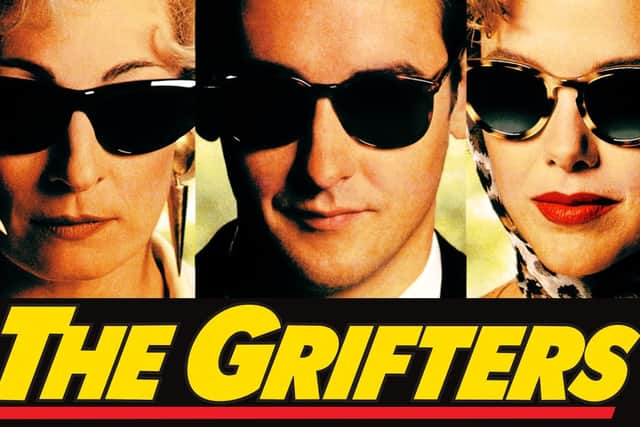The ‘Grifters’; why Meghan and Harry are labelled this term by Spotify executive, and what is a ‘grifter’?
People in this article
and live on Freeview channel 276
We tread very cautiously in penning this story, given the use of the phrase ‘grifting’ and the negative connotations that it implies. But that is the exact term that a Spotify executive is using to describe Meghan Markle and Prince Harry after news last week broke that Meghan’s podcast series would come to a close after only 12 episodes. The move follows the admission by the music streaming service that they will also be slimlining their service by culling around 2,000 jobs.
But such as strong allegation comes at a time where Spotify are trying to offset heavy losses in the music marketplace, with an estimated net loss of £367 million in the last year leaving the company to have a new, stronger approach to content deals as they look to try and improve their performance going forwards - and the cost of the deal with Meghan and Harry and what they received afterwards has led to those calls the pair ‘grifted’ their deal.
Advertisement
Hide AdAdvertisement
Hide AdPer an article from The Guardian, sources close to Spotify have said the royal couple did not meet the productivity benchmark required to receive the full headline payout from the deal, having only produced one 12-episode series. That led to ultimately Meghan’s podcast, ‘Archetypes’ to be culled as part of the downsizing taking place.
That elicited criticism from the Ringer podcast network founder Bill Simmons, who was involved in the deal, feeling the move had a detrimental effect on other podcasters that call Spotify home, including the popular, if not polarising, Joe Rogan and Marc Maron. "I wish I had been involved in the 'Meghan and Harry leave Spotify' negotiation. 'The F****ng Grifters.' That’s the podcast we should have launched with them."
In a previous episode of his podcast, Simmons also expressed annoyance at having to "share" Spotify with Prince Harry and commented on their relevance, stating, "You live in f****ng Montecito and you just sell documentaries and podcasts, and nobody cares what you have to say about anything unless you talk about the royal family and you just complain about them."
What does the term ‘grifter’ mean?


You’ll appreciate why we here at PeopleWorld had an apprehension using the word once you realise what it means… The term ‘grifter’ is used to describe someone who engages in dishonest or deceitful behaviour, often with the intention of manipulating or exploiting others for personal gain.
Advertisement
Hide AdAdvertisement
Hide AdGrifters typically employ various schemes or cons to deceive people into giving them money, property, or other valuable assets. They often rely on charm, persuasion, and manipulation to deceive their victims.
The term "grifter" is often associated with confidence tricks, scams, and fraudulent activities. In the case of Bill Simmons’ use of the word, it implies that both Meghan and Harry knew that they would not be able to meet the productivity benchmark but still managed to keep the money from the deal despite now no longer creating content for Spotify.
It also happened to be the name of a 1990 movie by recent King’s Birthday honours recipient, Stephen Frears, starring Anjelica Huston, John Cusack and Annette Bening - and gives a pretty accurate portrayal of grifting - not just a catchy title.
Comment Guidelines
National World encourages reader discussion on our stories. User feedback, insights and back-and-forth exchanges add a rich layer of context to reporting. Please review our Community Guidelines before commenting.
